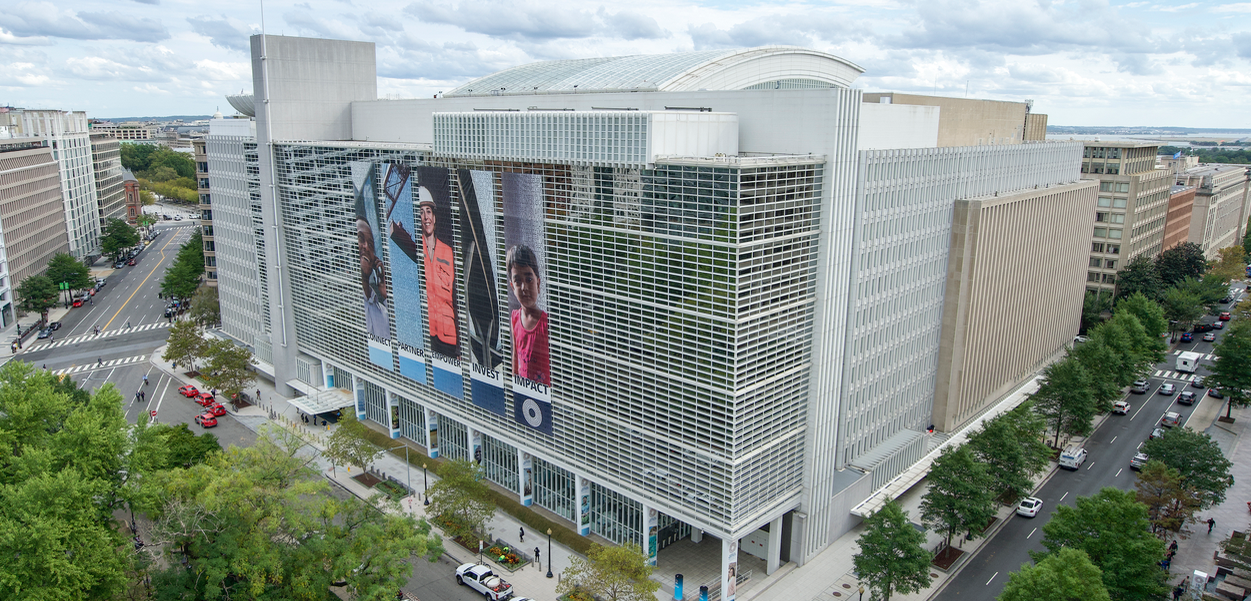 世界银行华盛顿总部
世界银行华盛顿总部
This week has been a busy one, and I would like to provide an update about recent developments in our work here at the World Bank Group on issues of debt transparency and sustainability, vaccine and healthcare responses, and others.
Debt Reduction, Resolution and Transparency
On Monday, I joined the G7 Finance Ministers and IMF Managing Director Kristalina Georgieva to discuss COVID-19 pandemic’s impact on the global economy and ongoing recovery efforts.
I thanked G7 countries for supporting the recent progress on debt transparency and reiterated our view that the Debt Service Suspension Initiative (DSSI) should be extended through 2021. We are working with creditor countries to validate and reconcile the debt that DSSI-eligible borrowing countries owe to various creditors.
In coming weeks, we’re planning to include more developing countries in this reconciliation process and will work with other G20 creditors on validating developing countries’ debt data.
We’ve so far seen some ad-hoc restructurings, but the magnitude of debt relief through the NPV process may be insufficient, and the risks of relapsing into distress is high. This would weaken borrowing countries’ prospects for new investments and sustainable recovery, and we need to do more.
Some elements of a more systematic approach to the debt challenges the world is facing include:
- Providing debt relief in the form of reduction in the stock of debt to countries with high debt vulnerability. Debt relief could be informed by the World Bank Group/IMF Debt Sustainability Analysis as applied in the current low interest rate environment. To be effective, any such relief would require all other official creditors and private creditors to provide comparable treatment.
- New debt instruments used to finance maturing debt could incorporate covenants and clauses that would make future debt resolution simpler, less litigious and less protracted.
- Lastly, lending countries can enact domestic legislation that prevents disruptive asset seizures (by litigating creditors) and constrains preferential recoveries. Good examples include the United Kingdom Debt Relief Act of 2010 and the resolution of the UN Security Council to protect Iraq from asset seizures by litigating creditors after 2003.
Vaccines and Healthcare Response
At the G7 meeting, I also highlighted the World Bank Group’s work on vaccines and our healthcare response. Equitable access to any COVID-19 vaccine will be critical especially for the poorest countries.
We’re committed to financing access to vaccines for our clients. Our globally-coordinated response is supporting over 100 countries in dealing with their immediate health emergency needs. We will build on these efforts through top-up financing to assist governments in acquiring vaccines, as well as therapeutics and diagnostics, and deal with urgent secondary health impacts of the pandemic.
Equally important to our response has been the International Finance Corporation’s (IFC) $4 billion Global Health Platform, through which the World Bank Group will support private companies in delivering health products and services, including vaccines, to developing countries.
Lebanon
Together with the G7 ministers, we expressed sadness about the tragic explosion in Beirut earlier this month.
We’ll be announcing our work on a Rapid Damage Needs Assessment soon, and we continue to explore ways to directly and transparently support the Lebanese people via social safety nets.
Ecuador
I was glad to hold my second bilateral meeting with President Lenin Moreno of Ecuador. We covered a number of topics, including our collaboration on a COVID-19 recovery that will benefit the people of Ecuador.
Digital Connectivity
I would encourage you to read World Bank Managing Director Mari Pangestu’s op-ed on the importance of Digital Identification Systems, a powerful tool which may help countries to “build back better” from COVID-19. These systems are important to broaden the reach of digital financial services, a powerful tool for enabling disadvantaged and underrepresented groups.
It has been a busy few weeks and we will continue to push ahead on delivering good country outcomes for the world’s poorest. As always, I am thankful for all of our partners and staff who make our work possible.
This post was originally posted on LinkedIn.


Join the Conversation